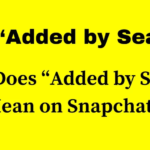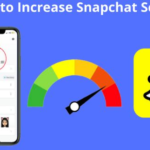The world is changing so fast that it is impossible to at least partially predict even the nearest future. In his conversation with Russell Brand entitled “The Future of Education,” Yuval Noah Harari, an outstanding Israeli intellectual, historian, and educator, says, “Nobody really knows what the world would look like in 2050. The only thing that we know for sure is that it will be a very, very different world than today.”

Thus, the aim of educators should be to help students learn to adapt quickly and give them a universal learning toolkit. However, the system of education that is supposed to get the young people ready to face the unprecedented changeability of the modern world is, unfortunately, not that flexible itself.
If we want not only to survive as a civilization but also to thrive, we need to start with re-shaping the contemporary educational framework so that it can finally accommodate the needs and interests of 21st-century students. We need to nurture progressive trends. But we also need to take a closer look at the outdated strategies that are holding us back.
The more people are aware of the problems the system of education is facing, the sooner the society will realize their urgency. No matter if you are a student or a teacher, the change starts with you.
1. Too Much Homework
Probably, you will not be surprised to hear that homework as a type of assignment is no longer an incontestable and unquestionable element of the educational machine. Today, only too many educators challenge the effectiveness and even the necessity of homework.
If homework is here to stay on equal terms with other learning formats, it needs to fulfill several important requirements. First of all, it has to be a logical continuation of in-class learning. Secondly, it needs to provoke interest and encourage creativity. Last but not least, it must be doable.
Otherwise, students, tired out and depressed by the overwhelming workload, will inevitably start looking not only for an admission essay service but for paper writing services as well or even look for a helper-outer among their peers. Only thought-provoking, challenging, and yet manageable tasks will foster the students’ hunger for knowledge and support their independent learning endeavors.
2. Neglect of Creativity
In his iconic TED talk, “Do schools kill creativity?” Sir Ken Robinson famously said, “Creativity is as important now in education as literacy and we should treat it with the same status.” And while many educators would argue that literacy should come first, in fact, as the mathematicians say, changing the order of the addends does not change the sum.
Creativity is a quality that allows humans to compete with computers. In the future, it may become the most valuable asset that we, human beings, can use to get a job and achieve success. So, the question is why we are still evaluating the learners mostly based on their ability to follow the rules and memorize material.
Young children are naturally creative. It should be the primary priority of the contemporary system of education to help them preserve and develop their creative potential when they go to college. When students feel trapped under an avalanche of stereotyped assignments, they are bound to start looking for EssayHub reviews and reviews of other writing services to delegate their homework. Creative tasks, exciting challenges, hands-on exercises, and practice-oriented projects will engage the students, empower them, teach them to collaborate and use their creative potential to the fullest.
3. Lengthy Lectures
Sometimes, lectures can be so engaging that students are unwilling to leave when the class is over. However, even such fascinating lectures can be tiring and unproductive when they are too long. The human brain works efficiently for around 25 minutes. Then, it needs a distraction, a change of focus to be able to process the received information as well as to recalibrate the ‘attention tool.’
It seems to be especially important in the context of online learning. The online environment further complicates the effective interaction between the students and the teacher within the lecture format.
No wonder that the most knowledgeable teachers choose Socratic lectures. They question their students throughout the class so that the listeners can participate more actively, feel empowered, and also stay attentive. The most experienced and shrewd professors alternate different teaching techniques. Their classes turn into accomplished multimedia performances that keep the students on the edge of their chairs.
4. Too Little Practice
The system of education is supposed to prepare the students for real-life challenges. However, in reality, many materials and activities are neither relevant nor practice-oriented. And even when they are, not enough attention is often paid to developing the practical skills through hands-on tasks that allow the students to achieve mastery.
After all, it is not a coincidence that the famous pedagogical principle “Tell me and I forget, teach me and I remember, involve me and I learn” has been attributed to many outstanding thinkers ranging from Benjamin Franklin to Confucius. Many contemporary approaches are based on this principle. These include, for example, project-based education, which ignites the students’ inner motivation, develops both their hard and soft skills, and effectively connects their studies with real life.
5. Orientation Upon an Average Student
In the 19th century, when the modern system of education was designed, it resembled an assembly line and produced potential workers to cater to the growing needs of industrialization.
In that context, orientation upon an average student seemed to be only logical. However, today, we have finally realized the simple truth that there is no such thing as an average student (as everyone is unique). So, it is high time we started to use our differences as an advantage rather than see them as an obstacle to effective learning.
All students learn differently. It means that they require different amounts of time to achieve mastery, but this also means that they can excel in different spheres. Our diversity is our power! As soon as we start encouraging learners to do what they can do best while also giving them enough time to work on things they find more challenging, the system of education will bloom.
Final Thought
The world is changing rapidly, and our task is to embrace this changeability, learn to live with it, and start seeing it as a wonderful opportunity to exercise our flexibility, critical thinking, soft skills, and resourcefulness.
Also have a look on Not Boring Guide On How To Develop Smart Contracts On Ethereum, What does Tendered for Delivery Mean in the USA, and What does the Meaning of “Thank You, Sir”, Origin, And Use?









